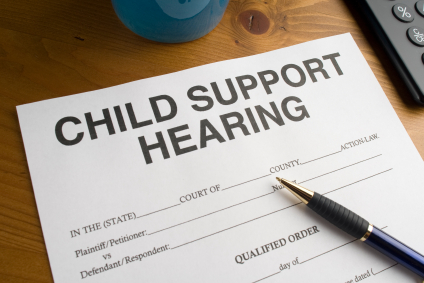Child support laws are legal requirements to prevent people getting out of their responsibilities to provide for a child. In most cases, it is a way to make sure that both parents contribute to the upbringing of a child even if they do not share custody.
The typical case is that a child’s natural parent (often the father) is required to pay support to the other parent. Often this is after the breakdown of a marriage, in which case the amount of child support is usually set during the divorce process. However, support can also be claimed in cases where the parents were never married and even if they never lived together.
If the child was conceived outside of a regular relationship, paternity may be questionable. In the past, it could be very difficult to prove who was the father of a child, because blood type testing had only negative results. Blood type tests can show that a man is in a group that could not have fathered the child, or that he is in a group that potentially could have fathered a child, but not that he is the actual father. However, these days we have DNA testing, and that means it is now possible to show who is the natural father of a child beyond all doubt.
In some cases, it is not the natural parent who is responsible for child support. In some cases, it may be the state, for example if the parents cannot be found or if they have no income.
Adoption is another situation that changes the rules. When a child is adopted, the adoptive parents take over all responsibility for that child, including payments of support if their relationship later breaks down. In most countries, it is not possible to make any claim on the natural parents after a child has been adopted.
Generally, step-parents are not responsible for child support. So for example, let’s say a couple marry, and the woman already has a young child from a previous relationship. The husband treats that child as his own, but does not adopt the child. In that situation, if the couple later divorced, the husband (the child’s step-father) would not be responsible for paying child support. He would, however, if he had adopted the child, or if the child was his own natural child, born before the marriage.
Like most laws, these ones vary in different jurisdictions. This means from state to state in a country like the USA, as well as one country having different laws than the next. However, pretty much all countries now have child support laws in one form or another since the 1992 United Nations Convention on the Rights of the Child.
Even though the USA did not sign this convention, 45 C.F.R. 302.56 requires each US state and native American tribe to publish guidelines on child support. These guidelines determine how to calculate support for the child for each case.
So how much child support are you likely to have to pay? The basis of calculation varies in different states. Usually, it is either a percentage of the income of the parent that does not have custody, or a percentage of the joint income of both parents. To find out the details, you will need to consult information on child support laws in your own state or nation.
